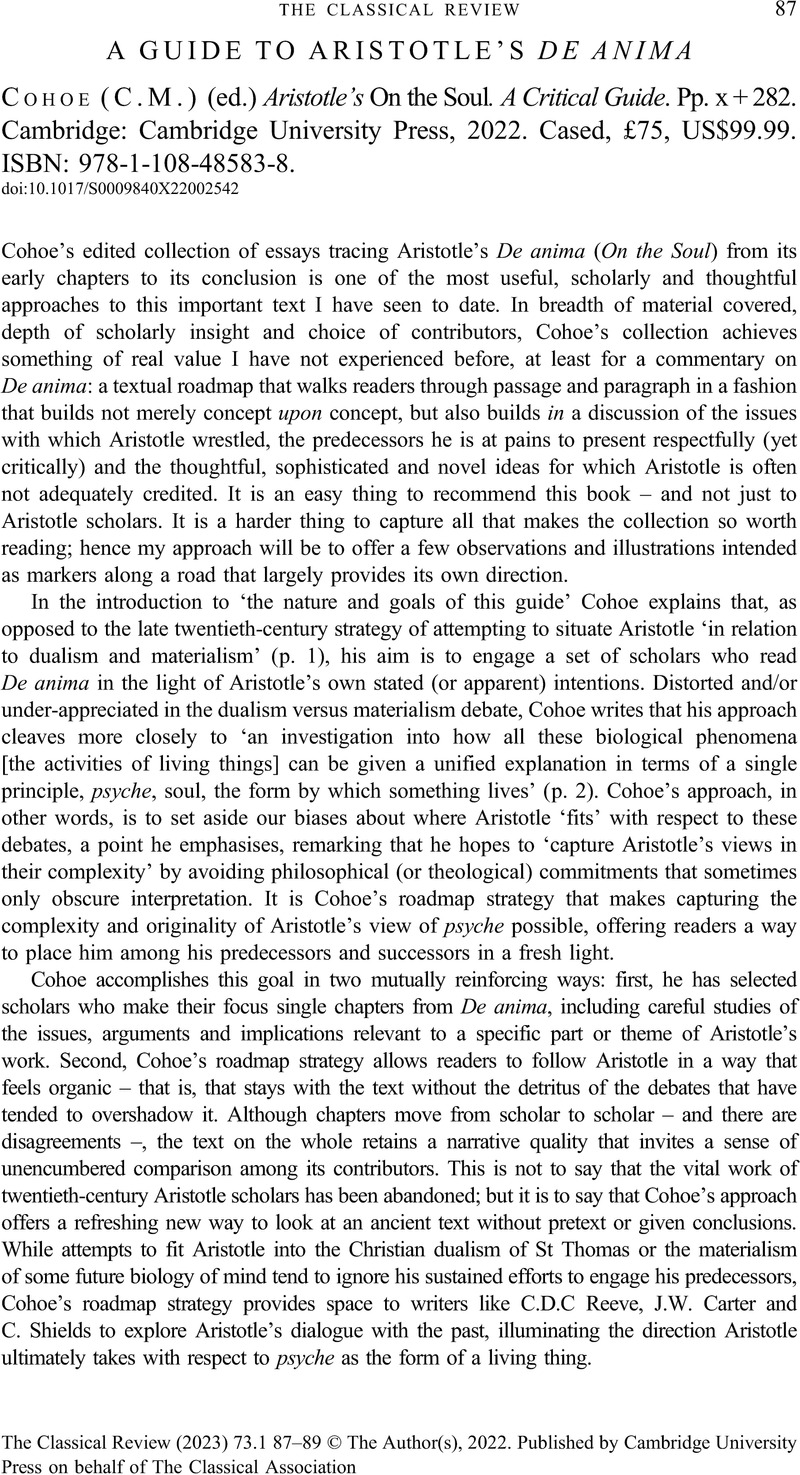No CrossRef data available.
Article contents
A GUIDE TO ARISTOTLE'S DE ANIMA - (C.M.) Cohoe (ed.) Aristotle's On the Soul. A Critical Guide. Pp. x + 282. Cambridge: Cambridge University Press, 2022. Cased, £75, US$99.99. ISBN: 978-1-108-48583-8.
Review products
(C.M.) Cohoe (ed.) Aristotle's On the Soul. A Critical Guide. Pp. x + 282. Cambridge: Cambridge University Press, 2022. Cased, £75, US$99.99. ISBN: 978-1-108-48583-8.
Published online by Cambridge University Press: 23 November 2022
Abstract
An abstract is not available for this content so a preview has been provided. Please use the Get access link above for information on how to access this content.

- Type
- Reviews
- Information
- Copyright
- Copyright © The Author(s), 2022. Published by Cambridge University Press on behalf of The Classical Association



